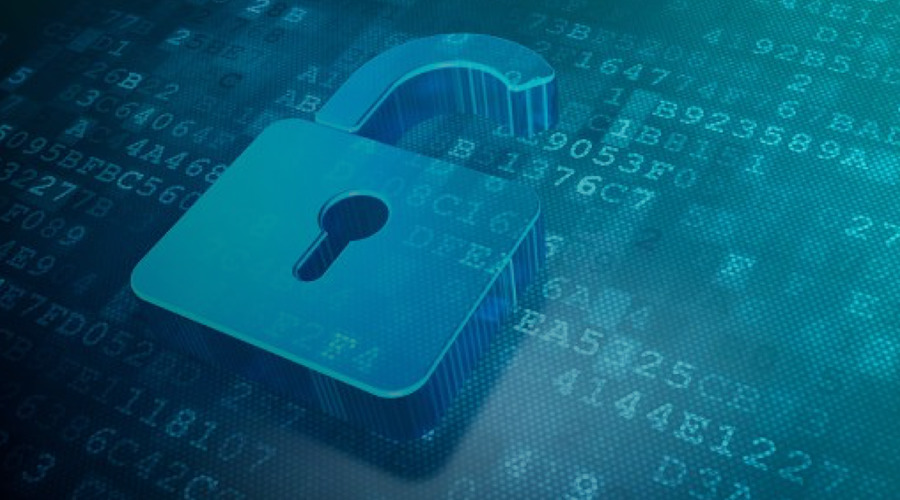In recent years, blockchain technology has gained significant attention for its potential to revolutionize various industries. One particular area where blockchain shines is in the realm of cryptocurrency security. With the rise in digital assets and the increasing prevalence of cyber threats, ensuring the security of crypto transactions and investments has become crucial. In this article, we will explore the role of blockchain in crypto security, examining how this innovative technology provides robust protection against fraudulent activities, unauthorized access, and data manipulation.
Understanding the Basics of Blockchain Technology
To comprehend the role of blockchain in crypto security, it is essential to have a solid understanding of the technology itself. At its core, a blockchain is a decentralized, distributed ledger that records transactions across multiple computers or nodes. Each transaction is bundled into a block and added to the chain in chronological order. The distinguishing features of blockchain include transparency, immutability, and decentralization, which contribute to its security capabilities.
The Importance of Security in the Crypto Industry
The crypto industry has witnessed significant growth over the years, attracting investors, traders, and businesses alike. However, this growth has also led to an increase in security concerns. Cryptocurrencies are stored in digital wallets, and any vulnerability in the security measures can expose them to theft or hacking attempts. Moreover, the pseudonymous nature of cryptocurrencies makes it challenging to trace fraudulent activities. Therefore, ensuring robust security measures is of utmost importance in the crypto industry.
How Blockchain Technology Enhances Crypto Security
Blockchain technology introduces several mechanisms that enhance the security of crypto transactions and investments. Let’s delve into some key aspects:
1. Immutable Ledger
One of the fundamental strengths of blockchain is its immutability. Once a transaction is recorded on the blockchain, it becomes virtually impossible to alter or tamper with. Each block contains a cryptographic hash that is linked to the previous block, forming a chain of interconnected blocks. This inherent immutability makes blockchain resistant to data manipulation and ensures the integrity of crypto transactions.
2. Decentralization
Decentralization is a core principle of blockchain technology. Traditional systems rely on a central authority, such as banks or governments, to validate and authorize transactions. In contrast, blockchain eliminates the need for intermediaries by enabling peer-to-peer transactions. By decentralizing the network, blockchain minimizes the risk of a single point of failure, making it harder for hackers to compromise the system.
3. Cryptographic Algorithms
Blockchain utilizes advanced cryptographic algorithms to secure transactions and protect users’ identities. Public-key cryptography is often used to authenticate participants and ensure that only authorized individuals can access and control their crypto assets. Additionally, hashing algorithms and digital signatures provide further layers of security, making it challenging for malicious actors to manipulate data or forge transactions.
Emerging Trends in Blockchain Technology Security

As blockchain technology continues to evolve, new trends are emerging to address existing challenges and enhance security measures in the crypto industry. Let’s explore some of these trends:
- Decentralized Finance (DeFi) Security: DeFi has gained significant traction, allowing individuals to participate in various financial activities without intermediaries. However, it also introduces new security risks. Innovations such as decentralized audits, multi-signature wallets, and insurance protocols are being developed to enhance the security of DeFi platforms and protect users’ funds.
- Privacy-Centric Blockchains: While traditional blockchains provide transparency, there is a growing demand for privacy-focused solutions. Privacy-centric blockchains employ techniques like zero-knowledge proofs and confidential transactions to enable secure and private transactions, ensuring the confidentiality of sensitive information.
- Cross-Chain Interoperability: The ability to transfer assets and data seamlessly between different blockchain networks is gaining importance. Cross-chain interoperability protocols and solutions are being developed to enable secure and efficient communication between blockchains, allowing users to leverage the benefits of multiple networks while maintaining security.
- Enhanced Governance and Consensus Mechanisms: Blockchain networks are exploring new governance models and consensus mechanisms to address scalability and security concerns. Innovations like proof-of-stake (PoS), sharding, and layer-2 solutions aim to improve scalability while maintaining robust security measures.
- Integration of Blockchain and Internet of Things (IoT): The integration of blockchain technology with IoT devices has the potential to revolutionize various industries. Blockchain can provide a secure and transparent platform for managing IoT devices, ensuring data integrity, and enhancing security in areas such as supply chain management, healthcare, and smart cities.
The Future of Blockchain Technology Security
As blockchain technology matures, its role in crypto security will continue to evolve. The future holds promising advancements and collaborations to strengthen security measures. Some potential areas of development include:
- Machine Learning-based Threat Detection: Machine learning algorithms can analyze vast amounts of data to detect patterns and anomalies, helping identify potential security threats in real-time. Integration of AI and ML technologies with blockchain can enhance security monitoring and threat prevention.
- Biometrics and Identity Verification: Blockchain-based identity management systems can leverage biometric data for enhanced authentication and verification. This can provide a higher level of security, reducing the risk of identity theft and unauthorized access to crypto assets.
- Quantum-Resistant Cryptography: As quantum computing advances, it poses a potential threat to traditional cryptographic algorithms. Developing quantum-resistant cryptography and integrating it into blockchain systems will be crucial to ensure long-term security.
- Collaboration between Industry and Regulators: Collaboration between industry stakeholders, blockchain developers, and regulatory bodies is essential to establish robust security frameworks and standards. Clear regulations and guidelines can provide clarity and confidence to users, encouraging wider adoption of blockchain technology.
Role of Smart Contracts in Ensuring Security
Smart contracts, self-executing contracts with predefined rules encoded on the blockchain, play a crucial role in enhancing crypto security. These contracts automatically execute actions when specific conditions are met, eliminating the need for intermediaries and ensuring that transactions are carried out securely and transparently. Smart contracts are programmed to execute transactions only when all predefined conditions are met, reducing the risk of fraud or unauthorized activities. They add an extra layer of security and trust to the crypto ecosystem.
Use Cases of Blockchain Technology in Crypto Security
Blockchain technology has a wide range of applications in enhancing crypto security. Let’s explore some prominent use cases:
- Secure Transactions: Blockchain ensures secure and transparent transactions by validating and recording each transaction on the decentralized ledger. This eliminates the need for intermediaries and reduces the risk of fraudulent activities.
- Identity Management: Blockchain can be used to establish and manage digital identities securely. With blockchain-based identity management systems, users have control over their personal information, reducing the risk of identity theft and unauthorized access.
- Supply Chain Management: Blockchain provides end-to-end visibility and traceability in supply chains. By recording every transaction and movement of goods on the blockchain, it becomes easier to identify and mitigate risks, such as counterfeit products or unauthorized modifications.
- Intellectual Property Protection: Blockchain technology can be used to establish verifiable ownership and provenance of intellectual property. By recording ownership details and timestamps on the blockchain, creators can protect their digital assets from plagiarism and unauthorized use.
Challenges and Limitations of Blockchain Technology in Crypto Security
While blockchain offers significant advantages in crypto security, there are also challenges and limitations to consider:
- Scalability: Blockchain networks, particularly public ones like Bitcoin and Ethereum, face scalability issues due to the time and computational power required to validate and add transactions to the blockchain. As the number of transactions increases, scalability becomes a concern that needs to be addressed.
- Energy Consumption: The process of mining and validating transactions on blockchain networks requires substantial computational power, leading to high energy consumption. This has raised environmental concerns and calls for more energy-efficient alternatives.
- Regulatory Frameworks: The rapidly evolving nature of blockchain technology poses challenges in terms of regulatory frameworks. Governments and regulatory bodies are still grappling with how to govern and ensure compliance within the crypto industry, which can impact security measures.
Innovations and Future Trends in Blockchain Technology Security
The field of blockchain security is continuously evolving. Here are some innovations and future trends to watch out for:
- Privacy Enhancements: Blockchain developers are exploring techniques such as zero-knowledge proofs and advanced encryption algorithms to enhance the privacy of transactions while still maintaining transparency and security.
- Interoperability: Efforts are underway to enable interoperability between different blockchain networks. This would allow seamless transfer of assets and data across multiple blockchains, enhancing security and efficiency.
- Integration with AI and Machine Learning: The integration of artificial intelligence (AI) and machine learning (ML) with blockchain technology can strengthen security measures. AI and ML algorithms can analyze patterns, detect anomalies, and identify potential security threats in real-time.
Conclusion
Blockchain technology has emerged as a game-changer in the realm of crypto security. Its inherent features of immutability, decentralization, and cryptographic algorithms provide robust protection against fraudulent activities and unauthorized access. Through mechanisms such as smart contracts, blockchain ensures secure and transparent transactions. While challenges and limitations exist, ongoing innovations and future trends aim to address them, making blockchain security even more robust in the years to come.
FAQ
- Is blockchain technology completely secure?
Blockchain technology offers strong security features but is not immune to all threats. Proper implementation and adherence to best practices are crucial to maximize security. - Can blockchain prevent all types of cyber attacks?
While blockchain can significantly reduce the risk of cyber attacks, it cannot guarantee complete protection. Cybersecurity should involve a holistic approach, including other measures like network security and user awareness. - Are all cryptocurrencies equally secure on the blockchain?
The security of a cryptocurrency depends on various factors, including the underlying blockchain technology, consensus mechanism, and the implementation of security measures by the cryptocurrency project. - What happens if a smart contract on the blockchain has a vulnerability?
If a smart contract on the blockchain contains a vulnerability, it can be exploited by malicious actors. Therefore, it is essential for developers to conduct thorough code audits and security testing to identify and address any potential vulnerabilities. - How can individuals protect their crypto assets from theft or hacking?
Individuals can protect their crypto assets by adopting security best practices such as using hardware wallets, enabling two-factor authentication, and being cautious of phishing attempts. It is also important to choose reputable and secure cryptocurrency exchanges and platforms. - What role does encryption play in blockchain security?
Encryption is a critical component of blockchain security. It ensures that data transmitted and stored on the blockchain is protected and can only be accessed by authorized parties with the appropriate decryption keys.




